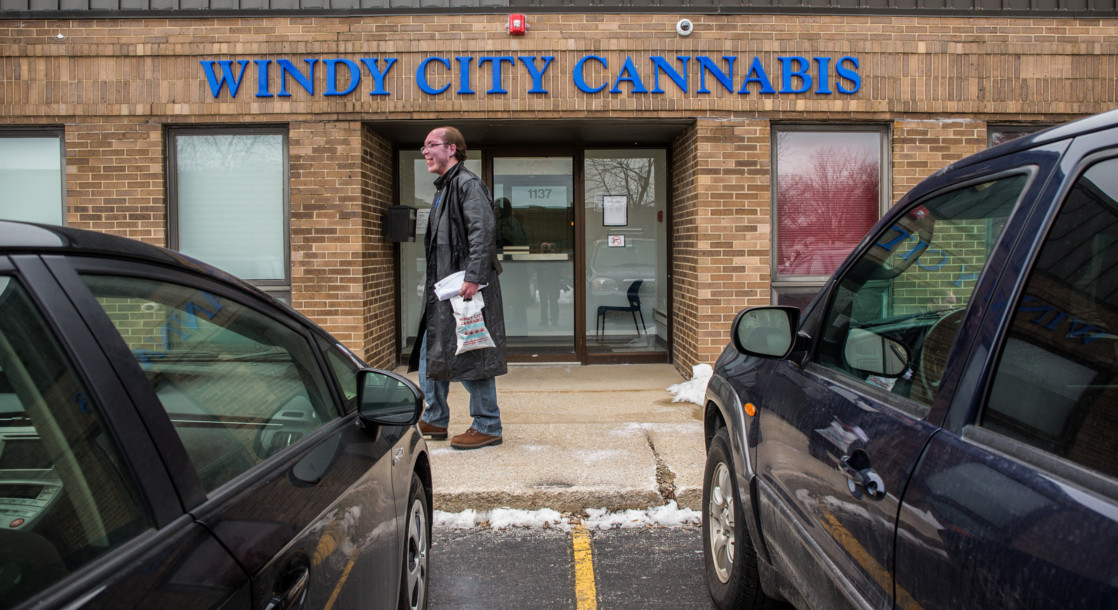A new research study conducted on patients enrolled in Illinois' pilot medical marijuana program has found that cannabis treatments have helped patients cut back on prescription drug use, or even quit entirely. Medical cannabis consulting firm Aclara Research recently released The Illinois Medical Cannabis Patient Experience Study, the first study on the effectiveness of the state's pilot MMJ program, which was launched in 2012.
Researchers surveyed 300 of the state's 18,000 registered medical marijuana users to learn why they were taking cannabis treatments and how effective those treatments were. Eighty six percent of the patients reported that they were suffering from chronic pain. Although chronic pain is not a qualifying condition for MMJ in Illinois, cannabis is often prescribed as an effective treatment for a number of autoimmune diseases that cause chronic inflammation as well as chronic pain.
The study also found gender gaps in the medical marijuana program as well as the state's overall health care system. Women were 50% more likely to suffer symptoms of chronic pain, including insomnia, back and joint pain, and anxiety. Overall, 47% of the patients in the study used CBD treatments on a daily basis, but 75% of female patients reported daily CBD use. Twenty-six percent of women reported never having used cannabis before entering the program, compared to 22% of respondents overall.
Researchers also looked into the financial impact of medical marijuana use. Forty nine percent of patients earn less than $40,000 annually, but spend over $3,000 a year on medical cannabis products. The costs of medical marijuana are not covered by Medicaid or traditional health insurance, thanks to the federal prohibition of cannabis.
Ninety two percent of the patients surveyed reported that cannabis treatments allowed them to cut down on their prescription drug use, while 33% were able to quit using prescription drugs altogether. This proves a great benefit for patients suffering from debilitating qualifying conditions, because medical cannabis has less abuse potential and fewer side effects than many pharmaceutical medications. The decrease in prescription drug use could also benefit the state financially, saving the state's Medicaid program an estimated $180 million.











